When Spring arrives in your neighborhood, there is one obvious sign, generally outside your front entrance or around your garbage cans.
It is ants.
Hundreds of ants, marching in unison, having discovered a potential food supply!
While we previously discussed using lemon to deter ants, in this post, we will look at utilizing vinegar to get rid of ants in your home.
What you will learn in this post:
- How to use vinegar for ant control.
- Which vinegar to use.
- Frequently asked questions.
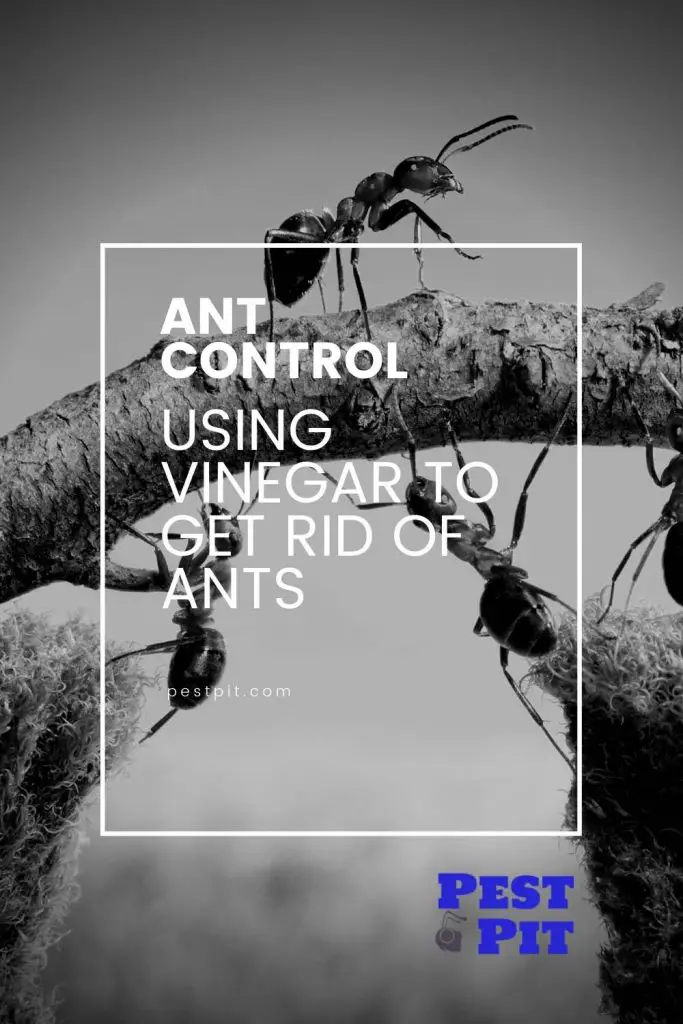
Why Use Vinegar?
Before we go into how you can use vinegar to get rid of ants, we need to answer a few questions.
One question is, why?
Let’s take a look.
Ants Do Not Like Vinegar
It may appear to be the most obvious reason to use vinegar for ant control, and it is!
Ants don’t like vinegar. We don’t know why, but we can only presume that they don’t like the smell, are afraid of the vinegar’s acidic characteristics, or don’t want to drown in it!
Natural
The best thing about vinegar is that it is a more natural ant control method. Some people oppose applying insecticides because they have pets or children who some insecticides may harm. Vinegar is a fantastic cure for this!
Easy Access
You probably already have vinegar in your house, but if not, it’s simple to walk out and get some from a nearby store.
Also, you can use vinegar for more than ant control! It has been used successfully as a cleaning agent for many years.
Which Vinegar Is Best?
White vinegar is the most effective vinegar for ant control! Because of its cleaning abilities, this type of vinegar has been used for many years.
Finally, if you want to utilize vinegar to assist rid your home of ants, use white vinegar.
5 Ways To Use Vinegar To Get Rid Of Ants
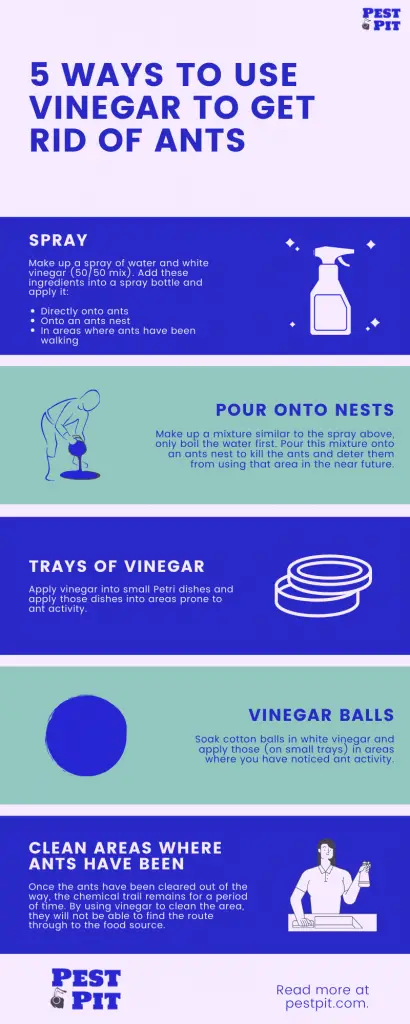
Spray
Make up a spray of water and white vinegar (50/50 mix). Add these ingredients into a spray bottle and apply it:
- Directly onto ants
- Onto an ants nest
- In areas where ants have been walking
The mixture will work in 2 ways.
- The ants will drown in the liquid. This is true if you spray enough liquid onto the ants.
- The vinegar will get rid of the chemical trail. This chemical trail directs other ants to a food source. If it is no longer present, ants will lose their path to the food supply.
Pour Onto Nests
First, make up a mixture similar to the spray above; only boil the water first.
Pour this vinegar solution over an ant nest to kill the ants and prevent them from returning in the future. The vinegar fragrance will soon fade, but it will prevent the ants from establishing another nest there.
Trays Of Vinegar
Apply vinegar into small Petri dishes and place those dishes into areas prone to ant activity.
Trash cans, kitchens, and corners of your home with gaps that allow ants to enter. These are the spaces where you should place the dishes.
Vinegar Balls
Soak cotton balls in white vinegar and apply those (on small trays) in areas where you have noticed ant activity.
These cotton balls will have a powerful scent and remain moist for at least 1 day (in hot weather, longer in a cooler climate), and the smell will last weeks!
These balls are an excellent way of controlling an ant infestation.
Clean Areas Where Ants Have Been
Once they have found a viable food source, ants will leave a chemical trail so that other ants know to follow it.
Once the ants have been cleared out of the way, the chemical trail remains for a while. By using vinegar to clean the area, they will not find the route through to the food source. This is also true for ant entry points.
When they follow the initial stages of finding a food source, they wander around randomly, trying to find food!
Why Does Vinegar Kill Ants?
There is nothing inside vinegar that will actively harm ants. While it is suitable for keeping ants away, vinegar is not the best way to kill ants.
That doesn’t necessarily mean that it does not work. I have killed ants using vinegar and a mixture of vinegar and dish soap.
When I sprayed the mixture on ants, it only took around 20 seconds for them to die.
The good thing about using this as a solution is that it also cleans up the chemical trails used by ants, which means seeing other ants around that area is unlikely to happen in the short term! So close the ant entry points to make sure.
Frequently Asked Questions

How long does it take for the vinegar to kill ants?
When I have sprayed vinegar onto ants in the past, they have died within around 20 seconds, but it does not take very long.
When spraying the ants, I suggest you spray them in large numbers, wait 30 minutes, and then go back and clean up the dead ants.
By cleaning up the dead ants with the solution, you also kill the chemical trail ants have set up to direct other ants to a food source.
What is a natural way to help with ant control?
I suggest using 2 natural methods to get rid of ants.
You can use vinegar, or you can use lemon. Using lemon to repel ants is an excellent, successful method because they seem to detest the smell of lemon juice almost as much as white vinegar!
Conclusion
This article includes 5 ways to use vinegar to help rid your home of ants if you want a natural and clean solution to your ant problem!
We’ve also discussed why you might think about using vinegar to keep ants away.
Ants are one of the most prevalent house pests that wreak havoc during the spring and summer months! When the weather changes, the ants come, and you must figure out how to get rid of them.
While ants do not transmit disease, they do have the ability to carry microorganisms from outside your home. The ants will then walk all over your kitchen counters.
This is where your white vinegar comes in handy once more! Vinegar is excellent for all forms of insect control.
Make a spray out of 50/50 vinegar and water and spritz it on your kitchen countertops on a regular basis. Don’t be concerned about the aroma; it fades quickly, and the end result is a clean countertop that ants will avoid.
Consider using lemon juice too.
Good luck!

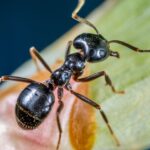


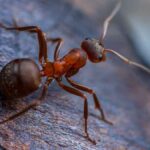
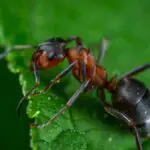


Well had a go at the lemon juice .freshly squeezed by me, see what happens tomorrow am 5am actually,seems to head for veg waste bin , any advice on baby rats in garden ?
Hopefully, it worked out for you! Baby rats aren’t the problem, it’s the bigger rats that gave birth to them 🙂 I would find out where they are hiding and smoke them out. You can also use humane traps to catch them. Keep a tidy garden, protect fruit trees, and seal up any entry points to your home.